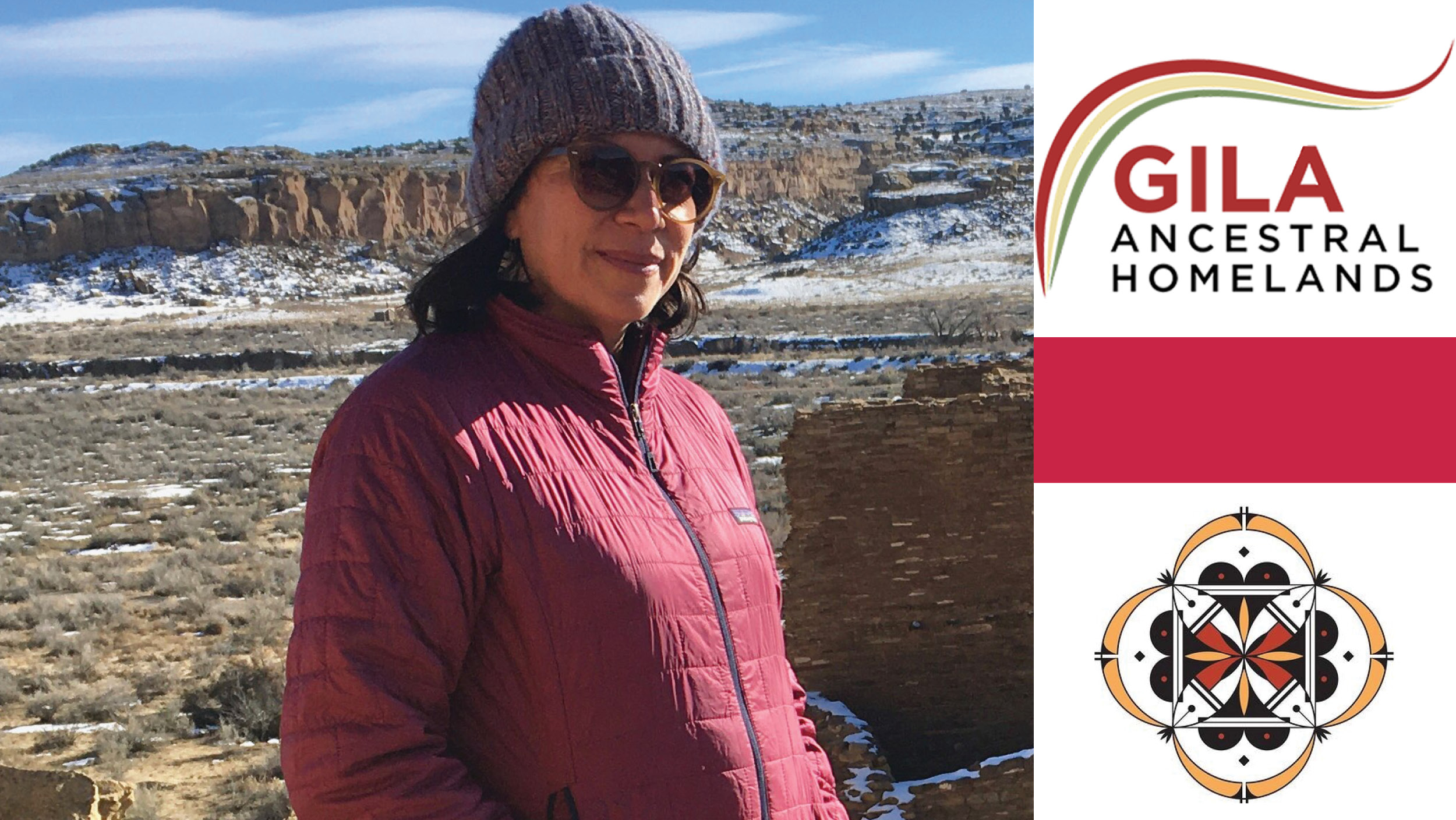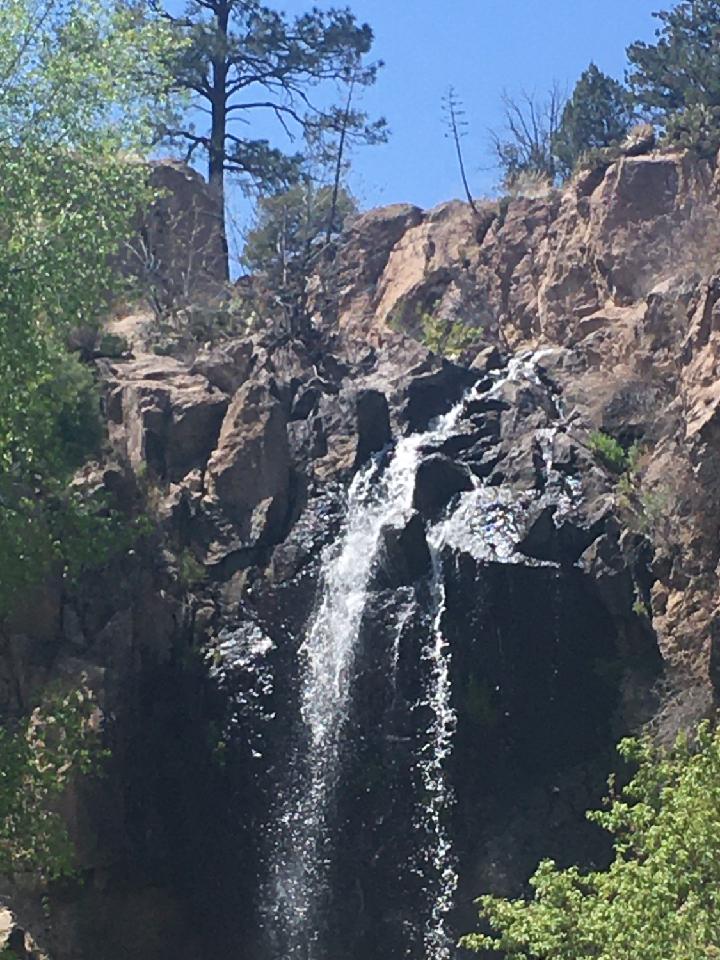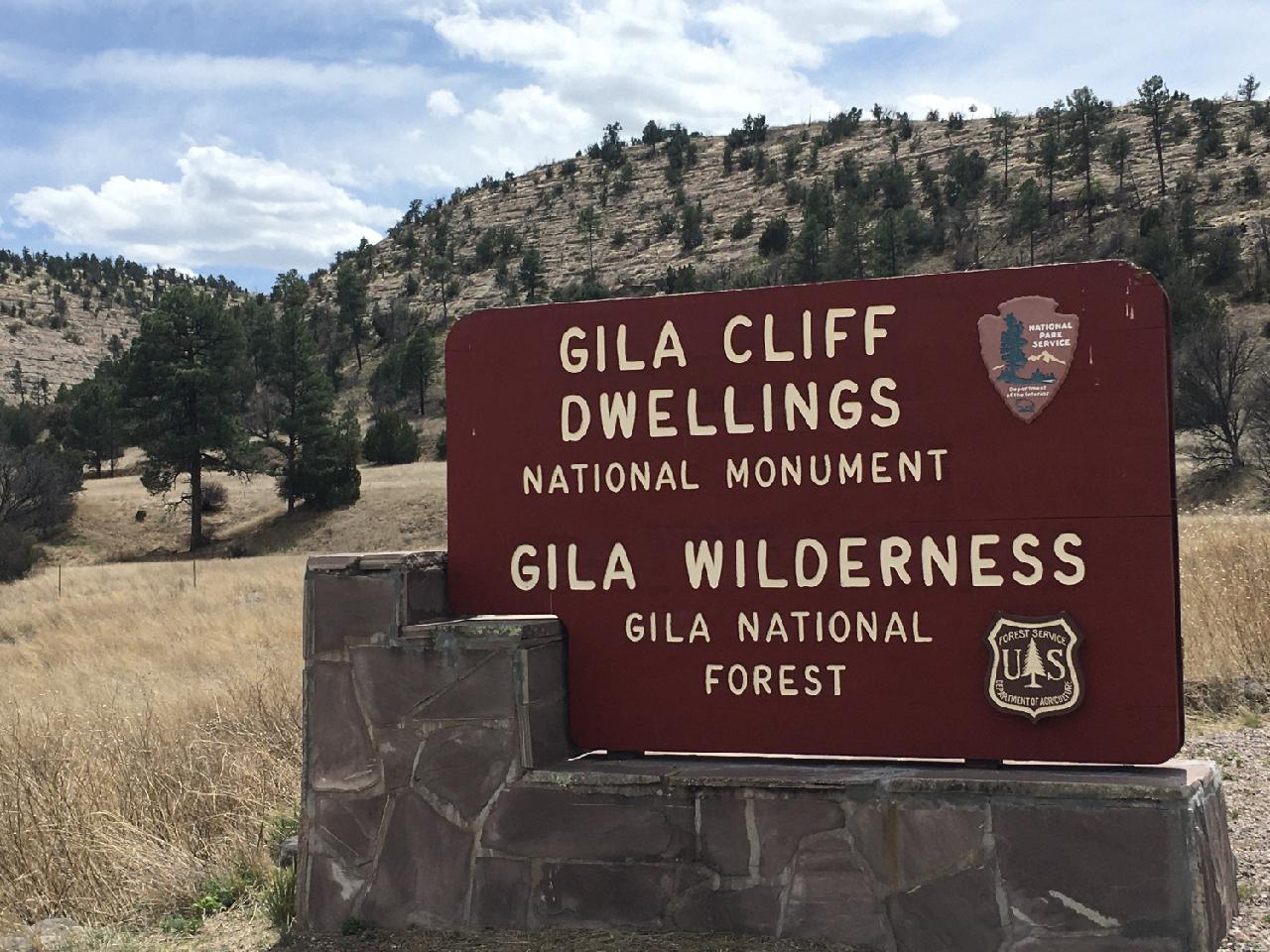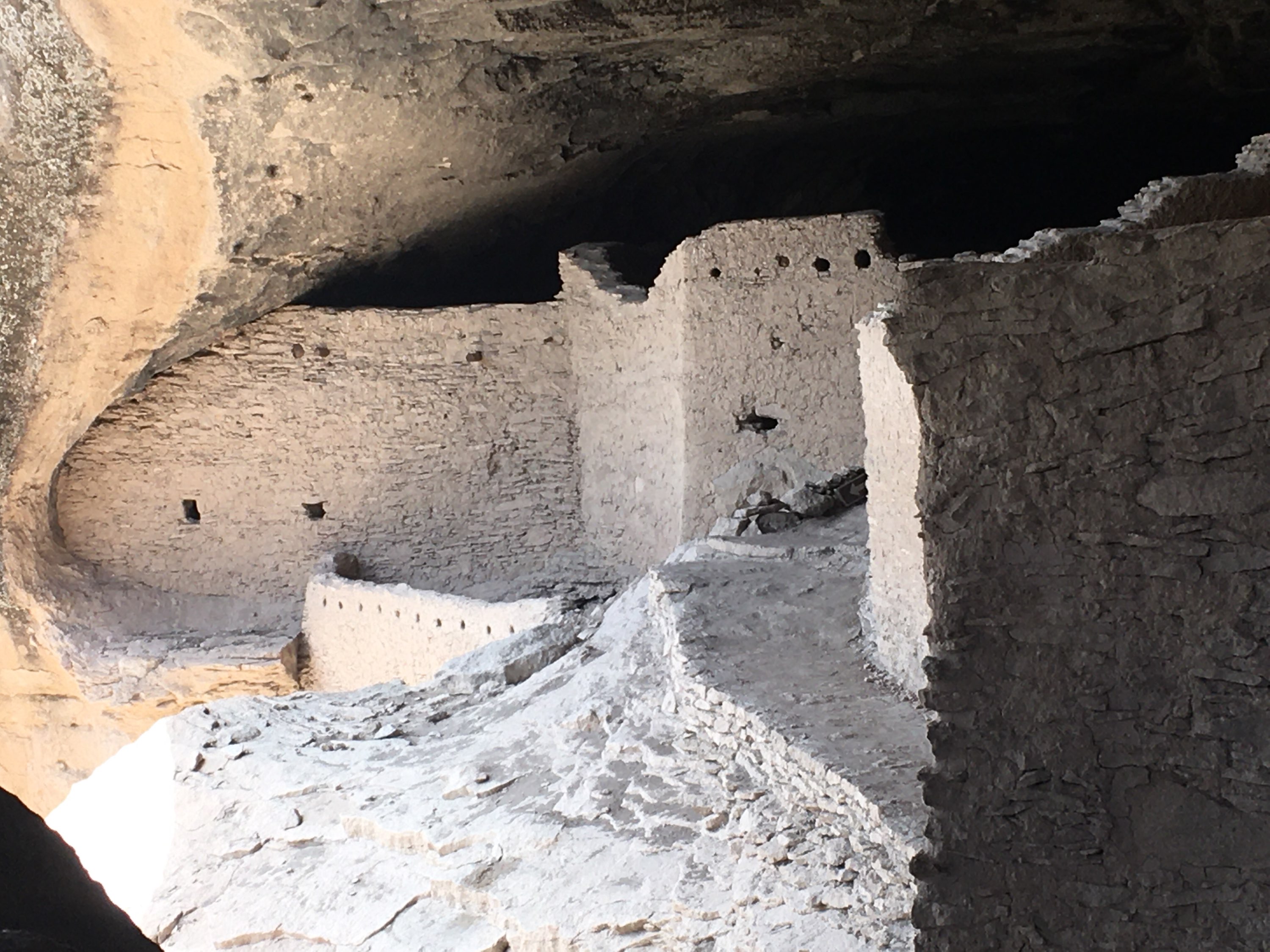Before and Beyond: celebrating the Gila Wilderness Centennial
January 22, 2024 - Irene Gray
Following the Beauty Way: Janice Lucero, Cotton Blossom Gardens, and New Mexico Ancestral Homelands

In 1924, the Aldo Leopold Wilderness in southwestern New Mexico became America’s first designated wilderness, predating the Wilderness Act by four decades. In recognition of the 100th anniversary of this significant milestone in our country’s history of conservation, organizations throughout the state are coming together to honor its rich natural and cultural heritage in a months-long celebration titled, The Gila Wilderness: Before and Beyond.
Conservationist Aldo Leopold advocated tirelessly for this space to be protected, resulting in its milestone designation 100 years ago. From January 26 through June 2 of this year, the centennial will not only honor the wilderness’ significant place in our nation’s history but also the Indigenous ancestral homeland that the wilderness encompasses across its 500,000 acres.
The Gila Wilderness is home to the Indigenous peoples of the Mimbres, Mogollon, Early Puebloan, Warm Springs Apache, Chiricahua, Chihene and N’de as well as many others. Prior to its designation as the nation’s first wilderness, the Gila served as the homeland for these Indigenous peoples for over 20,000 years.

The canyons, headwaters, forest, and animals that dominate the landscape have served as connection to both the land and Native ancestry for thousands of years, and the centennial will honor this important story throughout 2024.
Professor of Chicana and Chicano Studies, Michelle Hall Kells, is one of the organizers of the centennial celebration. For her, the experience of working together with communities throughout New Mexico to execute this extraordinary event has been profoundly personal.
Kells says,” The Centennial Ancestral Gila Homeland Project began for me as a journey that has been blessed by many teachers, guides, and travel companions along the way. My grandparents worked for the U.S. Forest Service through the 1930-1950s in California. I was raised as a child close to the wilderness spaces throughout California along the Sierras, Yosemite, and the San Gabriel Mountains. I hiked the John Muir Trail in Yosemite at the age of seventeen, and that pilgrimage changed my life.”
Of the centennial, Kells says, “My journey has demanded that I not only explore but interrogate the relationships of the U.S. Forest Service and conservationists like Aldo Leopold with the sacred lands of Indigenous peoples of this land. Restoring the sacred union of nature and culture (and the Indigenous stewardship of ancestral lands) is our only hope of surviving as a planet in this moment of climate change and environmental degradation.”
To start this significant commemoration, the first event will take place on Friday, January 26 with a special presentation by Janice Lucero, founder and owner of Cotton Blossom Gardens in the Pueblo of Isleta. Lucero is also the founder of the Isleta Pueblo Voters Alliance. This grassroots, nonpartisan organization empowers, educates, and encourages tribal members to vote.
Lucero’s presentation titled, “Indigenous Land Ethics and Core Values,” will share the past, present, and future of farming, community, and following your heart.

In 2020, Lucero inherited one acre of land on the Isleta Pueblo from her grandparents. This time was already a period of transition for her, as she felt burned out from her 20 years in the IT industry. While she had finally made it to a point in her career that she had worked hard to get to, she found herself looking for more. It was then that she chose to walk away.
This brave choice coincided with the onset of the pandemic and the gift of land from her grandparents.
The message was clear: it was time to go back to the land.
Lucero says, “Along this journey of life, we get so engrossed in the social culture and lose who we are. We get too consumed by money. I really got called to sit still and be still with the land and that’s how Cotton Blossom gardens started. It was a journey of self-discovery.”
Without a background in farming, however, where was Lucero to begin? With her family, of course, who has been right beside her in growing Cotton Blossom Gardens. In fact, her logo for the gardens was created from a piece of pottery she found on the land when she and her family first began developing it. The pottery was painted by her grandparents, who have also been with her throughout every step of this journey.
In 2022, Cotton Blossom Gardens became an LLC which has allowed her to connect with community organizations.
Cotton Blossom Gardens has grown into a thriving farm that is truly nourishing her family, her community, and Lucero herself. A portion of her vegetable garden goes to communities and other farmers throughout the state, but it also serves as a resource for educating the community about their important connection to the land.
Lucero hosts tours for youth and promotes land education through several community events on land and water, including the history of Acequias and what the water holds dear. For her, this educational component is core to her mission.
She says, “If we look at ourselves as seeds, they all have different colors, sizes, and shapes just as we do. Part of the journey is finding the correlation between who we are as seeds.”
Cotton Blossom is Lucero’s Tiwa name and the gardens she has so carefully nurtured over the past four years have become an homage to her ancestors who called her back to the land and this journey.
She says, “We have been disconnected from the laws of nature that our ancestors utilized and have instead turned our focus to the man-made laws that don’t align with who we are.”
Embarking on this journey was not without its own struggles but it is one that Lucero is grateful for. “It’s really about the power of thought,” she says. “What we think about we bring about.”

Kells looks forward to sharing Lucero’s story and others throughout the year, saying, “The Ancestral Gila Homeland Project seeks to make these cultural histories and stories of Indigenous homelands visible and palpable during the landmark event of the 2024 Centennial celebration of the Aldo Leopold Gila Wilderness designation.”
The Gila Wilderness Centennial is sponsored in part by the UNM College of Arts & Sciences, the Institute for American Indian Research (IFAIR), the Sustainability Studies program, the R.H. Mallory Center for Community Geography, the Southwest Hispanic Research Institute, the Department of Chicana & Chicano Studies, the Center for Regional Studies, and the Alfonso Ortiz Center for Intercultural Studies. For a full list of sponsors, please click here.
Janice Lucero’s presentation will be conducted via Zoom on Friday, January 26 at 3:00. Contact Michelle Hall Kells @ mkells@unm.edu for the Zoom link and passcode. All Zoom lectures will also be recorded and uploaded to the Gila Digital Hub here.
Information on Cotton Blossom Gardens’ community events is available on their Instagram page, @CottonBlossomGardens. You can also learn more about Cotton Blossom Gardens on their YouTube channel.
For a full list of events in honor of the Gila Wilderness Centennial, please go to GilaWildernessCentennial.wordpress.com.
